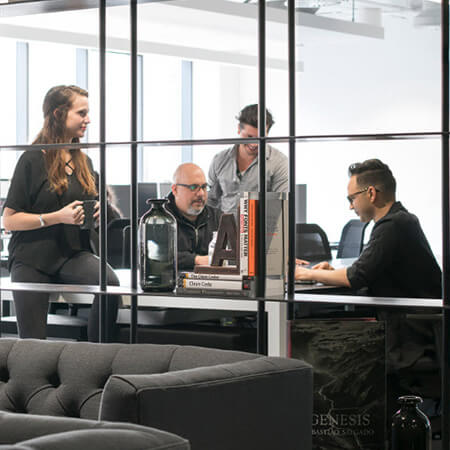Ireland has a strong national character and this shapes how people here work. However, no two businesses are the same and some professions have distinct customs, so keep this in mind as you read our guide to Irish work culture.
Business etiquette in Ireland
Generally, the Irish like to think that those who work hard and invest in their skills will rise to the top. Whether this is actually a reality within Irish business culture is up for debate. Either way, this belief pervades work life. So it should be no surprise to hear that the Irish workforce is among the most educated in the world.
However, as in many other countries, who you know is often just as important as what you know. Lots of business starts with third parties putting mutual acquaintances in touch. Irish people do share business cards, but they don’t hold the same significance as in other regions. They’re a little too formal for Irish business culture. You’re better off making friends with business contacts over after work drinks or a lunchtime coffee.
Informal interactions and small talk
Within the workplace, hierarchies are usually relaxed. People move on to first names swiftly and socialising with colleagues is common. On the other hand, excessive bureaucracy or overbearing authority are generally resented.
Family, weather and traffic are all safe subjects for small talk. The Irish love to bemoan the weather and Dubliners are no different. Salaries are the only taboo topic to avoid. It’s not a good idea to ask colleagues or peers how much they earn.
Punctuality
There’s also a myth going around that the Irish aren’t time conscious and don’t stress punctuality. It’s worth noting that this isn’t true. So make sure you’re on time for meetings, events and the start of the work day.

Business meetings
Generally, the Irish are casual people so don’t stress too much. When you attend a meeting, it’s customary to give everyone a firm handshake – men and women included. Always try to make eye contact when you’re having a conversation too. Otherwise, you may come across as insincere.
Beyond handshakes, the Irish aren’t big on public displays of affection. You’ll get away with a hearty backslap, but don’t move in for cheek-kissing or hugs.
Most of the time, business meetings in Ireland are coordinated by a chairperson. They’re usually the most senior person in the room.
Meetings generally kick off with some small talk before bigger issues are discussed. Good humour will get you far in Irish business culture, so don’t be surprised if someone starts cracking jokes in a meeting.
If you find yourself on the end of a well-meaning joke, try to take it lightly. You’ll probably find that most of your team have suffered at the hands of a quick-witted colleague too.
Work-life balance in Ireland
The average working week in Ireland is set at a maximum of 48 hours and, for most workers, this is based on the average hours worked over the past four months. (You can find out more in our introduction to Irish employment law.)
Working in Dublin full-time also means you’re entitled to 20 paid holidays each year. And, in light of the move to working from home during the pandemic, the Irish government recently introduced the right to disconnect too.
This means employees are entitled to switch off from their job outside of normal working hours. For example, they don’t have to respond to emails, calls or other messages immediately. All of this aims to help workers in Ireland maintain a positive work-life balance.

Networking and mingling
In Ireland, plenty of business takes place in social settings. Bars, restaurants and golf courses are popular venues for nurturing business relationships and closing deals. If you’re not a big drinker, don’t worry. Just order an orange juice and stay engaged in the conversation. Irish business people are much more interested in what you say than how much you drink.
You may even receive an invite to someone’s home for a meal. If so, take a small gift with you – a bottle of wine or some chocolates would be ideal. Just make sure you don’t overdo it. An ostentatious gift will cause more problems than arriving empty-handed.
Use your own judgement
The problem with all these generalisations is that they may not be true of where you find yourself working. Use your judgement, ask your colleagues and watch what others do. Above all, relax. You’ll be given a lot of leeway as a newcomer and, if you come from a place with a different culture, people will be understanding.
As part of a global study, business etiquette in Ireland was voted the “easiest to understand” in Europe for foreign workers. So rest assured, the Irish work culture is accessible and easy to adjust to.
If you’re curious about what it’s like to work for a specific employer, check their website or search for them on Glassdoor. It’s like TripAdvisor for workplaces so you can gather insights from people who already work there.





